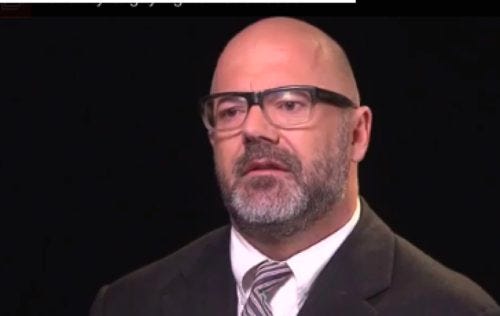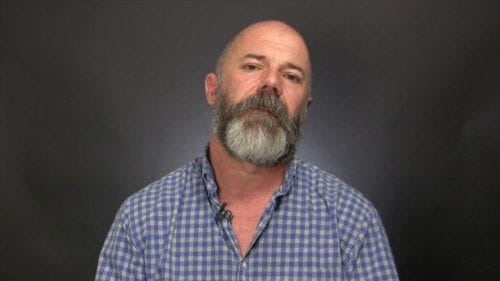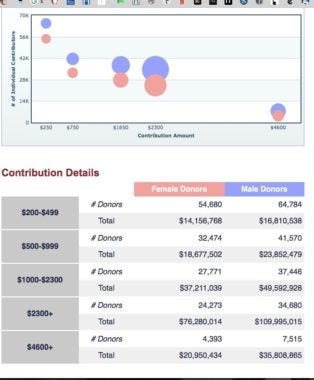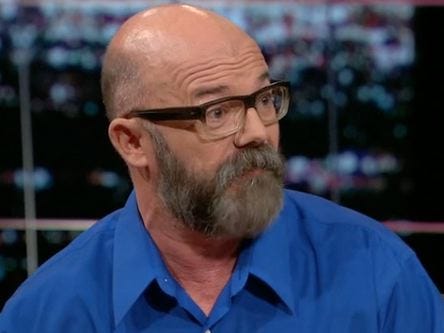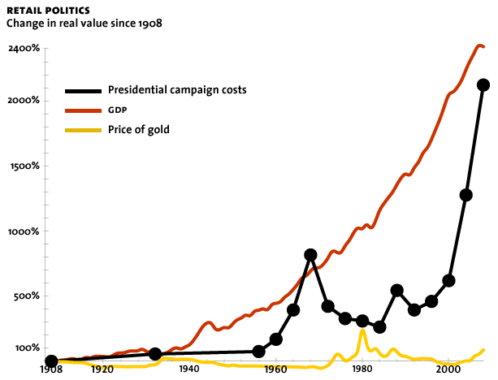Andrew Sullivan Doesn’t Understand Campaign Finance
Andrew Sullivan is trying to make a splash after being largely invisible over the past year since he “retired from blogging” in a grandiose announcement that was met with a large, uninterested yawn by the few members of the general public that didn’t react to the news with “Andrew Sulliwho?”
His first piece for New York Magazine, which he joined as a contributing editor in a selfless act of civic duty on April 1, a rambling piece entitled “Democracies end when they are too democratic.” The main target of the piece, from what I can tell, is the great unwashed hordes that are daring to exercise their ability to vote for a non-elite politician.
I want to focus on one of Sully’s early points, on money in politics.
I want to focus on it because it is pure nonsense.
[T]rump’s rise, says Sully, is fueled by the billionaire’s co-opting of the white working class’ grievances against a corrupt political system. It’s made possible by the US political system’s affection for the outsider politician. This affection, Sully says, is only 76 years old:
Once, candidates built a career through experience in elected or Cabinet positions or as military commanders; they were effectively selected by peer review. That elitist sorting mechanism has slowly imploded. In 1940, Wendell Willkie, a businessman with no previous political office, won the Republican nomination for president.
Ah, the old days, when the elites went about their business of selecting the leaders for the common folk, who welcomed their rule. Elitist specimens all, who relied on their great political and military experience to prove their mettle, except for Horace Greeley (unless we’re counting one year in the House as “experience”).
Now, Sully argues, the process has become all muddied up with people’s participation in choosing their choices for leader.
This further widening of our democracy — our increased openness to being led by anyone; indeed, our accelerating preference for outsiders — is now almost complete.
This is because of the great unwashed becoming overly involved in the process and getting it all dirty with their grubby poverty fingers. It couldn’t be for any other reason, like the rejection of a corrupted political duopoly, reliant on campaign funding and an endless network of revolving doors between public and private sectors.
Oh no.
Not that.
[S]ully sees the possibility that the reader might place the blame for the people’s anger at the feet of the continued influence of big money in politics. He quickly corrects this assumption:
The past few presidential elections have demonstrated that, in fact, money from the ultrarich has been mostly a dud.
Oh? Has it? Let’s see how Sully works this one out.
Barack Obama, whose 2008 campaign was propelled by small donors and empowered by the internet, blazed the trail of the modern-day insurrectionist, defeating the prohibitive favorite in the Democratic primary and later his Republican opponent (both pillars of their parties’ Establishments and backed by moneyed elites).
But that doesn’t sound right… oh, because it isn’t.
According to Open Secrets, Obama’s contributors provided massive influxes of money from banking and health insurance sectors, and 70,781 donors donating over $2,300 and up raised over $65 million more than all other 258,725 donors combined:
At best we can say that both Clinton and Obama (and McCain!) were backed by moneyed elites, which proves that money from the ultrarich goes to maintaining their influence no matter who wins.
There’s more:
In 2012, the fund-raising power behind Mitt Romney — avatar of the one percent — failed to dislodge Obama from office.
Yes, again, this doesn’t prove the point that Sully wants it to for the simple fact that, again, Obama’s 48,078 donors of the upper echelon were outraising all 243,919 others by about $60 million in 2012:
Furthermore, neither chart- from 2008 or 2012- shows the actual money raised and spent by the campaigns, which capped off around the $750 million mark each year. The majority of that funding was not from “small donors.”
But I digress.
[S]ully then applies his mixed-up logic to the 2016 cycle. He begins with Sanders:
In this presidential cycle, the breakout candidates of both parties have soared without financial support from the elites. Sanders, who is sustaining his campaign all the way to California on the backs of small donors and large crowds, is, to put it bluntly, a walking refutation of his own argument.
No. NO. This is a refutation of your argument, Sully. If Sanders has to fight to raise $181 million to compete in a primary then that means that money in politics has become so pervasive and insidious that the only way to play the game at the top tier level is to raise a quarter of a million dollars just to get on the ticket for the general election.
…….
Okay.
Next up is Trump:
Trump, of course, is a largely self-funding billionaire — but like Willkie, he argues that his wealth uniquely enables him to resist the influence of the rich and their lobbyists.
Trump was the beneficiary of an estimated $1.9 billion in free advertising from news and social media. If we halve that to represent the portion he’s receiving from only mainstream media sources, it’s still a staggering figure (and more than double anyone else on the field without halving save Clinton, thought Trump still leads her by a quarter million).
The value of this free media attention can’t be overstated. It’s as if anyone who would want to catch up would have to raise $1 billion dollars.
[A]nd now for Sully’s coup-de-grace:
Those despairing over the influence of Big Money in American politics must also explain the swift, humiliating demise of Jeb Bush and the struggling Establishment campaign of Hillary Clinton.
Yes, Jeb crashed and burned, but Clinton is winning the Democratic nomination handily, no matter what her opponents supporters say. “Struggling” is perhaps a bit much, considering the former Secretary of State has spent less than Sanders has in 2016 thus far, $121.6 million to $80.2 million.
Sully wraps up his paragraph’s argument, convinced he’s resoundingly defeated the notion that money in politics has any influence:
The evidence suggests that direct democracy, far from being throttled, is actually intensifying its grip on American politics.
Here’s the problem. What evidence? As I’ve just shown, Sully’s entire premise that big money hasn’t affected politics over the past 8 years has no standing whatsoever. His argument holds no water.
I firmly believe his career is based on the fact that he has a British accent, and therefore sounds something like what stupid people in this country think a smart person sounds like.
189 days to go kids. It’s almost over.
[spacer height=”20px”]
Update: the wonderful driftglass, a Sully expert, has a rundown of the article here.

